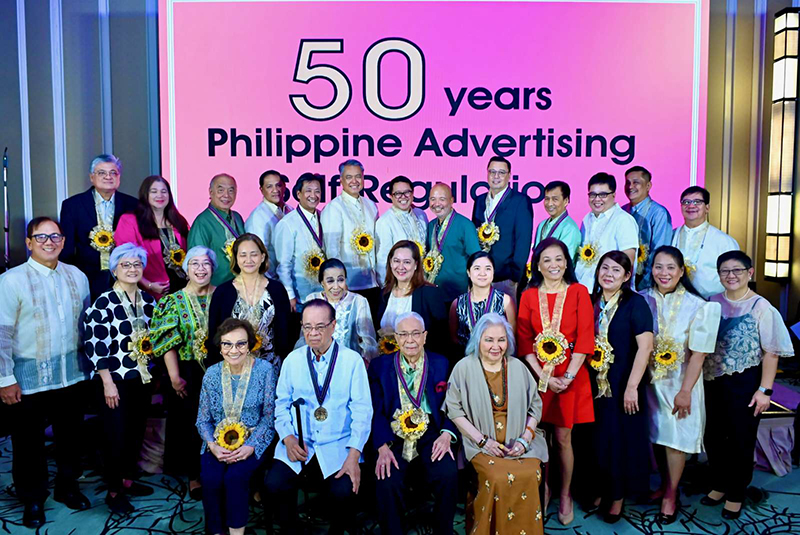Manila, 07 May 2024 –At ceremonies held at the Makati Diamond Residences, 22 individuals were given the highest industry honors by the Ad Standards Council in celebration of their role in paving the way for the country’s advertising industry to take the reins and lead itself. In short, liberating the industry to create and operate using self-regulating guidelines.
Do you know that the ad you just saw underwent a process to make sure it’s fair, factual and fit for public consumption? In the Philippines, advertising runs on self-regulation. Advertising adheres to guidelines that promote fair-trade practices, presents substantiated claims, and protects the rights of consumer. Advertising undergoes a certification process as proof it is fit to show consumers, administered by the Ad Standards Council.
The Ad Standards Council and self-regulation symbiotically is defined as an organization running on its own codes, rules, guidelines without intervention from external bodies. ASC is the designated private sector organization in the country that upholds advertising content, creates and abides by its Code of Ethics and Standard Manual of Procedures developed and approved by its members intended to safeguard consumer interest.
The practice of self-regulation enables the industry, through the ASC, to operate independently, without external intervention. This ensures that the advertising industry continues to uphold its high standards and the industry stakeholders remain accountable to consumers in their craft. Self-regulation helps foster consumer trust necessary to generate a healthy advertising ecosystem.
A History of Self-regulation
The wheels to the creation of self-regulation started rolling in 1974. Its historic mounting with a multi-sectoral gathering of various entities headed by The Mass Media Advisory Council instituted a new system of self-regulation in what would become the advertising Code of Ethics signed and ratified. This was later implemented by communications and broadcast trade organizations. In 1974 the Philippine Board of Advertising (created in 1973) would take over the role as implementing body of the Advertising Code of Ethics.
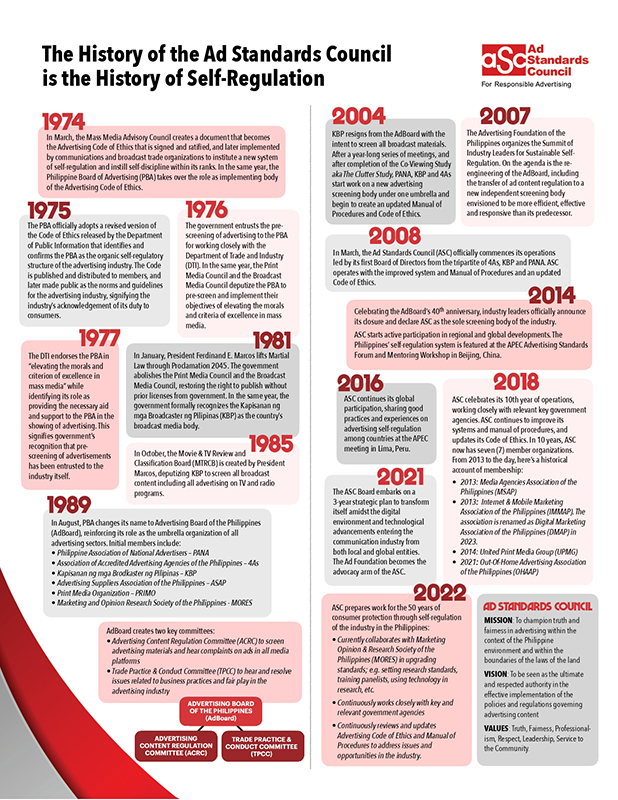
The Philippine Model of Self-regulation
While self-regulation is practiced in other countries, the Philippine model of self-regulation procedure is lauded by its counterparts for its ability to sustain relevance. The ASC model is unique with its structure that includes 7 member associations namely: Association of Accredited Advertising Agencies of the Philippines (4As PH), Digital Marketing Association of the Philippines (DMAP), Kapisanan ng Brodkasters ng Pilipinas (KBP), Media Specialists Association of the Philippines (MSAP), Philippine Association of National Advertisers (PANA), United Print Media Group (UPMG), and Out of Home Advertising Agencies of the Philippines (OHAAP).
The ASC also works in partnership with government entities including Department of Trade and Industry, Department of Health, Food and Drug Administration, Department of Agriculture, Department of Agriculture, National Meat Inspection Service, Movie and Television Review and Classification Board, Department of Human Settlements and Urban Development, Department of Labor and Employment, Civil Aeronautics Board, National Telecommunications Commission, Bangko Sentral ng Pilipinas, Intellectual Property Office of the Philippines, Philippine Amusement and Gaming Corporation, Department of the Interior and Local Government, and the National Historical Commission of the Philippines.
The Honorees
From the industry’s illustrious history, the ASC, current protector of Self-regulation, honors 22 trailblazing men and women who championed the right for the freedom to practice advertising and operate agency businesses without intervention. Fifty years ago, they served as the bastion of professionals that stayed true to the Code of Ethics of Self-regulation, and instilled self-discipline within its ranks.
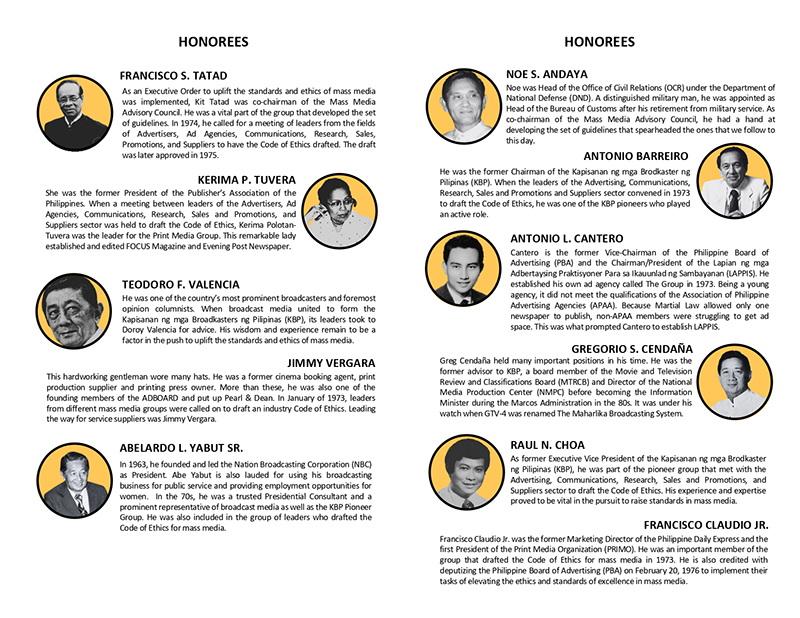
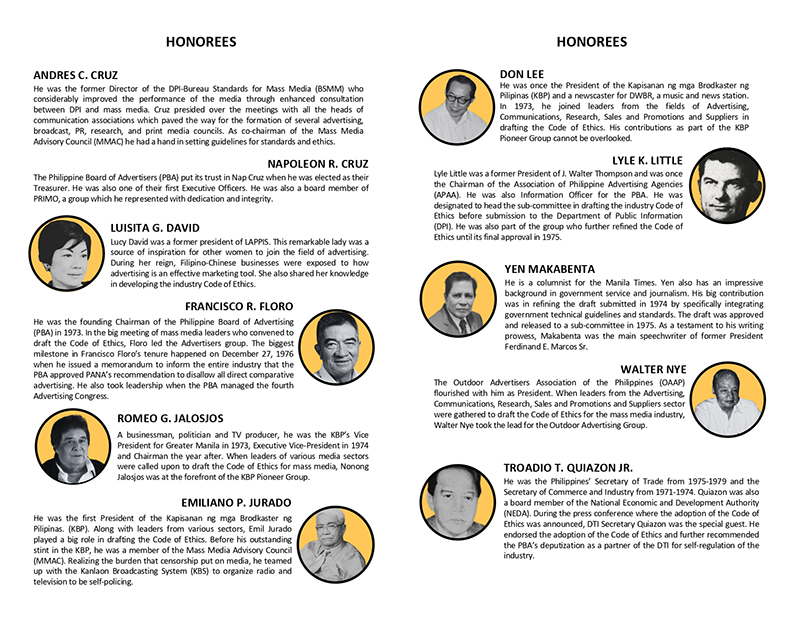
The Medallion, The Designer
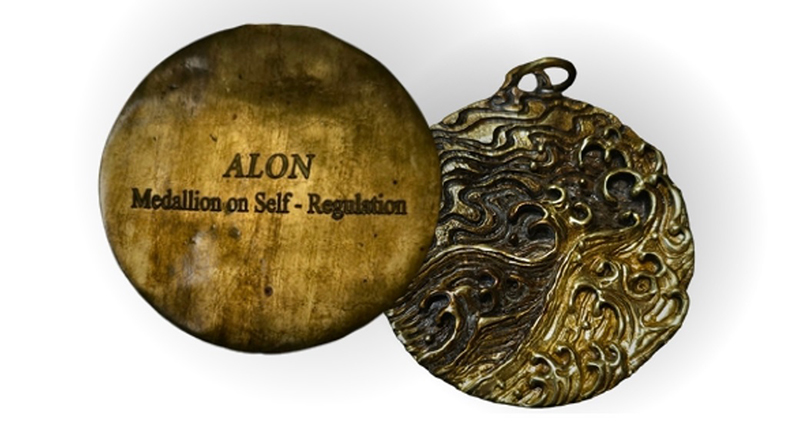
The Alon medallion serves as a symbolic representation of the industry’s unstoppable transformation and the waves of influence that self-regulation creates to safeguard the integrity of Philippine advertising. A nod to the pentad concept, a group of five waves signifies the collaborative efforts of various stakeholders working in unison towards a singular noble purpose.
Designed by Director Dante Dizon of 13 Lucky Monkey, the prototype started with sketches, then sculpted in wax by hand. The lost wax method was used to cast the pieces in solid brass before being hand polished with a dark patina for contrast and the back laser engraved to contrast with the wabi sabi aspect of the sculpted piece.
Dante Dizon continues to spark the creative plug in the most mundane. With over two decades in advertising agencies, Dizon has exposure to global brands and other multi-talented creatives of the industry. Tirelessly working on marketing campaigns, he pursued the world of production, thrilled to be in the creative process of executing the advertising outputs.
His area of work has evidently grown more meticulous over the years as he currently co-manages 13 Lucky Monkey. From sketching to molding and casting, Dante’s commitment to the painstaking art is continuously recognized and appreciated across the globe, acquiring one client after another. Dante Dizon’s versatility is what inspires the creative field to go beyond bounds.
What they say about Self-regulation
Mick Atienza, ASC Chairperson and PANA president, says, “It is important that brand builders and advertisers know the relevance of self-regulation. It is by paying tribute to those that paved the way for the creation of the guiding principles of self-regulation that we can deliver its value to the consumer and how it protects their rights and interests, and how the practice enables our industry to grow and contribute to nation-building.”
Jun Nicdao, one of the ASC founders, KBP Chairman of the Board, and ASC Chairperson of the multi-year celebration, says, “The true power of self-regulation lies not just in its ability to foster creativity, efficiency and growth, but also in its capacity to empower and connect consumers, uphold ethical standards and form meaningful collaboration that transcend boundaries and unite us in our shared mission. The multi-year celebration aims to renew the industry’s commitment to self-regulation, to celebrate achievements, and chart the course for the future built on the values of integrity, responsibility, and excellence.”
